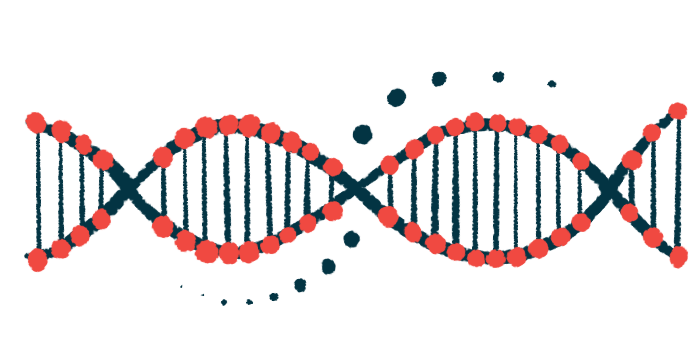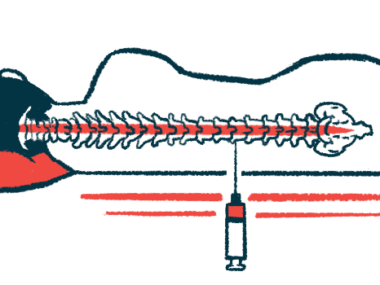Novel splicing mutation found to cause SMA for baby in Cyprus
Mutation causes problems with splicing of SMN1 gene: Case report
Written by |

A never-before-documented mutation in the SMN1 gene was identified as the cause of spinal muscular atrophy (SMA) type 1 for a baby in Cyprus.
The case was reported in a study, “Spinal muscular atrophy type I associated with a novel SMN1 splicing variant that disrupts the expression of the functional transcript,” which was published in Frontiers in Neurology.
SMA is caused by mutations in the gene SMN1, which provides instructions for making the SMN protein. Like other protein-coding genes, SMN1 contains exons, which are sections of gene that contain directions to make protein. These exons are interspersed with introns, the non-coding regions that help to regulate the gene’s activity.
When the SMN1 gene is “read,” the entire genetic code is copied into a temporary molecule called messenger RNA (mRNA). The mRNA then undergoes a process called splicing, where the introns are removed and the exons are strung together to form a mature sequence that can be used to make SMN protein.
Another gene called SMN2, which functions as a sort of backup for SMN1, also provides instructions to make SMN protein. However, a small difference in the genetic code causes the mRNA from SMN2 to be spliced differently, and as a consequence, this backup gene produces substantially less SMN protein.
90% of SMA patients harbor exon 7 deletion mutation
More than 90% of SMA patients harbor a mutation known as an exon 7 deletion, where one of the exons in SMN1 is absent. In the study, researchers reported the case of a child found to harbor a novel mutation in SMN1.
The baby required medical support for her breathing a few days after birth, and within the first two months of life, she had abnormally low muscle tone, her doctor noted. This prompted a review by a pediatric neurologist, who determined that her symptoms were consistent with a diagnosis of SMA. Since her symptoms appeared in the first months of life, she was diagnosed with SMA type 1.
Genetic testing was then undertaken. Everyone inherits two copies of the SMN1 gene, one from each biological parent. SMA develops only if both copies of the gene are mutated.
Testing showed one of the baby’s SMN1 copies harbored the common SMA-causing mutation where exon 7 is deleted. This mutation was also found in the baby’s father.
The other copy of SMN1 was found to harbor a different mutation that hasn’t been reported before, dubbed c.835-8_835-5delinsG. This novel mutation was also found in the child’s mother.
Unlike most SMA-causing mutations that affect the exons which provide instructions to make SMN protein, this novel mutation was located in one of the gene’s non-coding introns. Through computer analyses and cellular experiments, the researcher determined this mutation causes problems with splicing of the SMN1 gene, so that even though exon 7 is present in the gene, this crucial section gets left out of the mRNA that’s used to make SMN protein. As a consequence, virtually no functional SMN protein is produced.
Conceptually, this molecular mechanism is somewhat similar to the splicing abnormality in SMN2 that causes the backup gene to produce so much less protein. The researchers noted, however, that further studies will be needed to determine exactly how this mutation causes errors in splicing.
“Our findings support a pathogenic [disease-causing] effect for the novel c.835-8_835-5delinsG splicing variant,” the researchers wrote.




